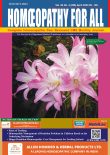The Hidden Anxiety Trigger: How Caffeine Impacts Mental Health
Keywords:
Anxiety disorder, Caffeine, Mental healthAbstract
Caffeine, common in coffee and tea, can boost alertness but also trigger anxiety, especially in sensitive individuals. This paper explores how caffeine affects the nervous system, potentially worsening anxiety symptoms, and discusses strategies like moderation and mindful consumption to manage these effects and support mental health.
Downloads
References
1. Camandola, S., & Mattson, M. P. (2017). “Impact of Coffee and Caffeine on Health.” Neuroscience Bulletin, 33(3), 293-301.
2. Baldwin, D. S., & O’Neill, A. (2019). “The Anxiety Effects of Caffeine: From Hypothesis to Clinical Practice.” Human Psychopharmacology: Clinical and Experimental, 34(6), e2715.
3. Fredholm, B. B., Bättig, K., Holmén, J., Nehlig, A., & Zvartau, E. E. (1999). “Actions of Caffeine in the Brain with Special Reference to Factors That Contribute to Its Widespread Use.” Pharmacological Reviews, 51(1), 83-133.
4. Rogers, P. J., & Dernoncourt, C. (1998). “Regular caffeine
consumption: A balance of adverse and beneficial effects for mood and psychomotor performance.” Pharmacology Biochemistry and Behavior, 59(4), 1039-1045.
5. Bruce, M., & Lader, M. (1989). “Caffeine and anxiety: A review.” Journal of Anxiety Disorders, 3(2), 129-148.
6. Uhde, T. W., Cortese, B. M., & Vedeniapin, A. B. (2009). “Anxiogenic effects of acute caffeine on panic disorder
patients.” The American Journal of Psychiatry, 156(2), 278-281.
7. Juliano, L. M., & Griffiths, R. R. (2004). “A critical review of caffeine withdrawal: Empirical validation of symptoms and
signs, incidence, severity, and associated features.” Psychopharmacology, 176(1), 1-29.
8. de Andrade, F. M., & de Souza Crippa, J. A. (2005). “Caffeine and anxiety.” Current Psychiatry Reports, 7(1), 23-26. https://acspublisher.com/journals/index.php/hfa/$$$call$$$/grid/users/author/author-grid/add-author?submissionId=18862&publicationId=18338
9. Childs, E., & de Wit, H. (2006). “Subjective, behavioral, and physiological effects of acute caffeine in light, nondependent caffeine users.” Psychopharmacology, 185(4), 514-523.
10. Nehlig, A. (2016). “Effects of coffee/caffeine on brain health and disease: What should I tell my patients?” Practical Neurology, 16(2), 89-95.




